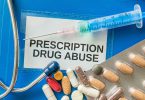It may seem depressing to realize that the rate of relapse amongst drug addicts is 40-60%.
But relapse isn’t that uncommon. It’s just not talked about a lot. There’s also the stigma of shame that surrounds those struggling with addiction. Especially when they slip up.
As a medical health professional, your goal is to help addicts stop using. That’s because you want them to live healthy, happy lives.
But without the proper tools, it’s all too easy for an addict to fall back into their old patterns. It’s one of the reasons it’s so important to incorporate a relapse prevention strategy into your rehab treatment program.
Keep reading to learn more.
When to Begin
While everyone is different, for most people, the recovery process from addiction is a long one. For some, it can take months or even years to recover.
For others, the road to recovery takes a lifetime.
That’s why relapse prevention measures should begin as soon as the patient comes to you for treatment. These measures are steps a patient can use effectively for their rest of their lives to prevent themselves from using again.
By combining mindfulness strategies with cognitive, behavioral, and motivational techniques, your patients develop the necessary skills to avoid impulsive and compulsive behavioral responses.
The sooner those skills are introduced to your patients, the more chances they have to fully develop those skills. As they become stronger, it becomes easier for them to fight off urges and triggers.
The Tools for Relapse Prevention
There are several tools used in relapse prevention. They are tools a patient can use anytime and anywhere to help them stay free of substances.
What’s great is that these tools aren’t difficult to learn how to use. In fact, it’s too bad everyone isn’t taught these skills in school as they are all highly effective in managing all types of stress.
Let’s learn about them now.
Identifying Their Triggers
There’s never just one reason why someone abuses drugs and/or alcohol. People are complicated.
They get triggered by social, behavioral, and psychological factors. Situations that make them feel uncomfortable, emotional, or nervous is enough to have them running towards their next fix.
Having a poor expectation of outcomes or a lack of motivation makes it difficult for patients to stay on track.
Everyday stress, re-exposure to the substance, and environmental cues also trigger patients to slide backward in their treatment.
But when a patient is made aware of what their triggers are, they can begin to take control over their own behavior. That leads them to make smarter choices like leaving an uncomfortable situation or calling a friend for help.
Handling Tough Situations
No matter how much someone tries to avoid difficult situations, they will happen. Unexpected situations make people feel emotionally and psychologically vulnerable.
Stress has become such a problem that 33% of Americans feel as though they are living with extreme stress.
Those with substance abuse problems are more prone to avoid difficult situations by using.
And then there are the cravings. Whether the cravings are physical or mental, without the right tools, it’s difficult to make the choice to stay on the path to recovery.
With an effective relapse prevention program, patients learn how to handle stressful situations and reduce their cravings successfully.
Recalling the Tough Times
When times get tough, patients often forget to think about how far they’ve come or the difficulties they’ve struggled to get through so far.
Relapse prevention helps patients remember how strong they already are. Patients see all the difficulties they’ve already faced and are reminded of how difficult that journey was the first time.
This acts to help individuals feel empowered at a time when they might otherwise feel weak and prone to relapsing.
Handling Slip-Ups
One thing patients in rehab have to learn is how to cope with making mistakes. It’s okay to have a minor slip even after receiving treatment.
What a patient has to learn is that while a minor slip up might happen, it’s their responsibility to ensure it doesn’t turn into a major relapse.
Relapse prevention programs teach patients that it’s okay to fail. What is not okay is to give up entirely.
Patients learn they have a support system both within themselves and from others.
Part of the program is setting guidelines for friends and family to support the individual both during recovery and after to prevent any relapses.
This helps everyone as it helps ensure the cycle of substance abuse is permanently stopped.
Recognizing the Warning Signs
Recognizing the warning signs is an extremely important part of relapse prevention.
When a patient learns to recognize they are under duress, they can take immediate measures to take whatever means of self-care is necessary to prevent a relapse.
There are several stages of a relapse. The first phase is emotional where the patient experiences confused and out-of-place emotions.
Next to follow is the mental relapse that’s marked by conscious drug cravings and obsessions.
If no relapse prevention steps are taken, the physical relapse occurs.
When prevention is taught, patients are provided with psychological guidance and practical support every step of their recovery process.
Why It’s Necessary
Implementing an evidence-based cognitive-behavioral approach along with identifying and reducing high-risk triggers aids in relapse prevention.
Each patient works to create their own toolbox of prevention measures based on their specific triggers and situations along with their team of healthcare professionals, friends, and family.
Those individuals who can implement these coping strategies when dealing with a craving or impulse is less likely to relapse compared to those who have not developed these coping tools.
Add Yourself to Our List
The decision to enter rehab is often a difficult one for people to make. It’s important each patient finds the best facility to handle their individual needs.
That’s where you come in. Our site is designed to help individuals struggling with addiction find the best care – no matter what type of health plan they have or what their financial situation is.


















